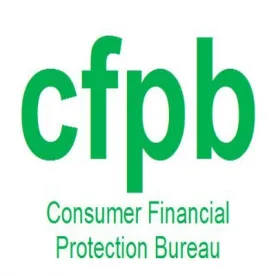The Consumer Financial Protection Bureau (CFPB) issued its final rule on March 30, 2023, under Section 1071 of the Dodd-Frank Wall Street Reform and Consumer Protection Act. Section 1071 is an amendment to the Equal Credit Opportunity Act that requires financial institutions to collect, and report on, certain information regarding women-owned businesses, minority-owned businesses, and other small businesses. The data points include, among other things, race, ethnicity, sex of the business’s principal owners, loan amount, interest rate, and other information. These laws and implementing regulations are intended to increase transparency in small business lending and promote fair lending.
The final rule is a result of the rulemaking process that officially began on September 1, 2021, with a notice of proposed rulemaking and comment period (NPRM).
Thousands of comment letters were submitted to CFPB for consideration. The final rule includes notable changes from the NPRM, including an increase in the lender loan number threshold and adopting an implementation process in phases depending on the volume of the covered lender’s small business loans. The largest lenders will need to begin to collect data starting October 1, 2024, with smaller lenders to follow later. An additional change from the NPRM is the expansion of exempt transactions.
The final Section 1071 rule applies to financial institutions that fall under the definition of “covered financial institution.” Financial institutions originating at least 100 qualified credit transactions (up from 25 in the NPRM) to small businesses in each of the two preceding calendar years are included. Credit transactions within the scope of “covered credit transaction” include loans, lines of credit, credit cards, merchant cash advances, and credit products used for agricultural purposes. CFPB has excluded certain credit transactions from the rule. It has excluded trade credit, public utility credit, securities credit, and incidental credit as proposed in the NPRM. CFPB also confirmed exclusions in commentary to the final rule for factoring, leases, consumer-designated credit that is used for business or agricultural purposes, as well as exclusions for credit transaction purchases, purchases in a pool of credit transactions, and purchases of a partial interest in a credit transaction.
In addition to the exclusions noted above, CFPB added exclusions to the final rule in response to comments received during the NPRM comment period. The additional exclusions are provided for transactions reportable under the Home Mortgage Disclosure Act of 1975 (HMDA) and insurance premium financing transactions. CFPB states that the exclusion of reportable HMDA transactions would avoid redundancies and reporting inconsistencies where data collection of similar information occurs elsewhere. CFPB likewise provided several reasons to exclude insurance premium finance from coverage. Noting these types of transactions are very different from other credit products like loans, lines of credit, credit cards, and merchant cash advances, CFPB found that insurance premium financing is not a general-use lending product. Instead, the lending product exists only to facilitate the sale of a specific insurance product, and the underwriting focus is on the insurance carrier, not the borrower. Providers of insurance premium financing also are not primarily financial services providers, nor do they currently manage compliance with regulatory requirements associated with making extensions of credit. Based on the foregoing, CFPB determined that requiring insurance premium financing reporting may lead to significant data quality issues. Costs of compliance with the final rule, CFPB also found, could potentially limit the availability of insurance premium financing to small businesses, undermining the business and community development purpose of Section 1071.




 />i
/>i
